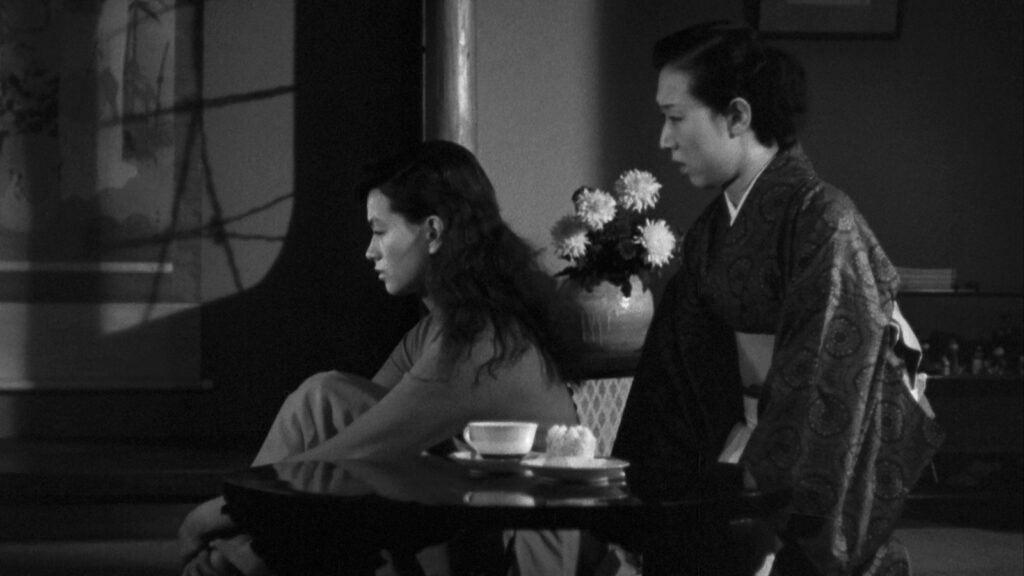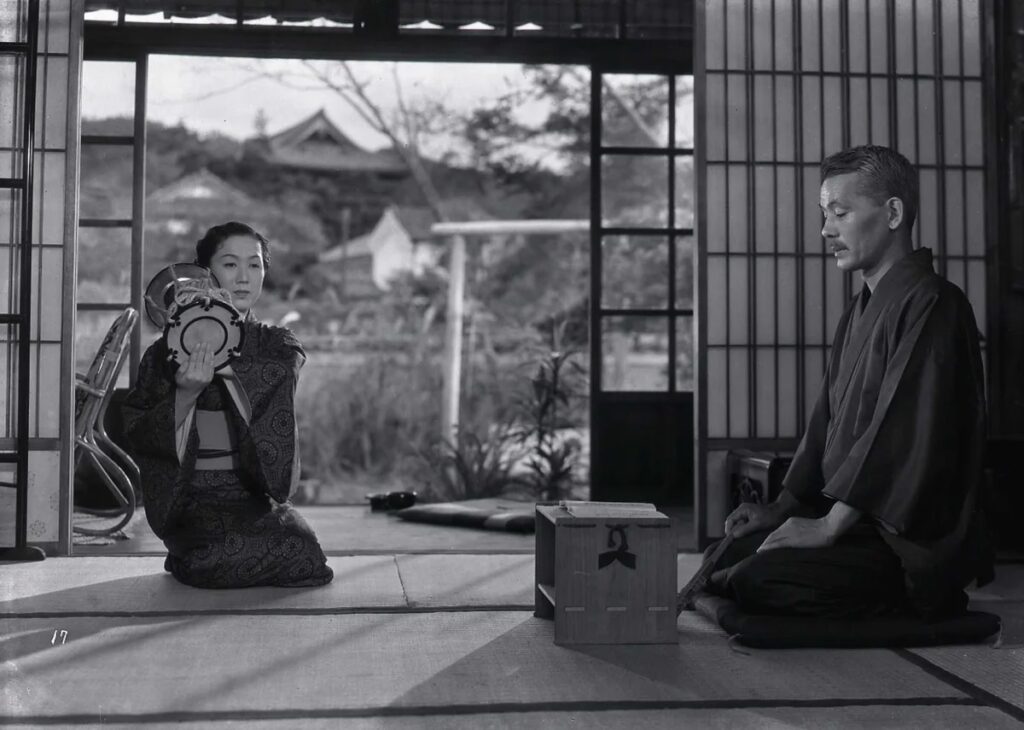Kinuyo Tanaka is one of the biggest acting names in 20th-century Japanese history. However, her work behind the camera has seldom been as discussed as her work in front of it, although a long overdue account of Tanaka’s work as a director has finally been published. In 1955, a decade after World War Two and three years since the USA’s occupation of Japan came to an end, Tanaka directed and starred in Tsuki wa Noborinu (The Moon Has Risen), a contemplative, light drama about love and transformation. Receiving its Scottish premiere at the Edinburgh International Film Festival, it is no understatement to say that Tanaka is responsible for one of Japan’s lesser-known cinematic masterpieces.

In post-war Japan, a widower named Mokichi (Chishû Ryû) lives in a temple with his three daughters; Chizuru (Hisako Yamane), Ayako (Yôko Sugi), and Setsuko (Mie Kitahara). Setsuko tries hard to set her sister Ayako up with a handsome telecoms representative who has travelled to Nara from Tokyo. Meanwhile, Setsuko hangs on to her boyfriend’s coattails, longing for the day that they too can escape to a new life in the Japanese capital.
Tanaka’s film has an irresistible tenderness underpinning everything, from the gentle editing to the naturalistic family relationships between the exceptional cast. On the surface, it would appear to be an exercise in mundanity, but there is so much more beneath the surface; the ambitions of each of the lead female characters in some way represent the cusp of change Japan was teetering upon. Following the devastation of the war, Japan in the 1950s was a nation advancing technologically at breakneck speed (“ever heard of microwaves?” asks one character proudly, referencing a new communications network being installed across the country). Nara represents the old Japan being left behind by modernity, while Tokyo’s scarcely seen urban heights are the future. Tanaka has crafted a social commentary out of an everyday family situation, using one typical family as a microcosm for how her country was changing before their eyes – as well as her own.
The Moon Has Risen at times has the same swoon-worthy character of classic Hollywood movies, but if anything filmed with more sensitivity and timidity. In one pivotal scene, where Ayako is deceived into being alone with her love interest under the full moon, all we see are their feet walking away from one another… until they both stop, and turn, with still only the feet being visible. It is a moment that makes you burst out in a smile and is typical of the happiness that flows through the veins of Tanaka’s story (from a script by Yasujirô Ozu, Tanaka’s mentor and friend). It doesn’t shy away from difficult moments or conflict but is more interested in an exploration of love and independence in the middle of a changing world. In the wake of such transformation, the moon – eternal, steadfast, and bright – is an everlasting sign of true love. How Tanaka brings this idea to the forefront is a wonder to experience.

Best of all, The Moon Has Risen is a genuinely funny film even so many years later. A phone call rehearsal scene, in particular, shows a fantastic sense of humour, and littered throughout the film are moments of comedy that keep the film feeling light and fluffy. Tanaka is not interested in looking ahead (or behind) with trepidation or guilt, as other Japanese films of the era seemed interested in doing. Instead, the future is captured with jokes, low stakes and mutual admiration between family members, at least for most of the time.
A gem of Japanese cinema worth seeking out, The Moon Has Risen is romantic, cheerful and comedic in all the right doses. To capture such a pivotal point of a nation’s social history and not descend into pessimism is a remarkable achievement in optimistic filmmaking. In many ways, sharing qualities as it does with so many American classics of the 1940s and ‘50s, it is the perfect movie for a lazy Sunday afternoon; the ideal time and environment to get sucked into a gently fantastic story of growth, progression and love.
The Moon Has Risen screened as part of the 2022 Edinburgh International Film Festival.
